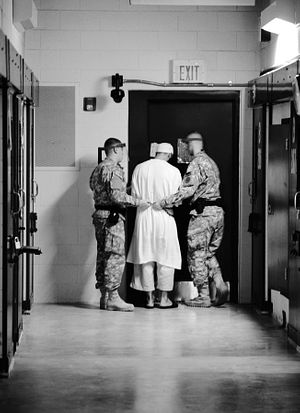Central Asia weekend reads:
Former Guantanamo detainees exiled to Kazakhstan: Vice published an excellent investigative report and short documentary on the handful of former Guantanamo detainees exiled to Kazakhstan. None of the five men released from the notorious prison in December and sent to Kazakhstan, are Kazakh (four remain, one died in May of kidney failure). While President Obama pledged to close Guantanamo, it has proven a tremendously difficult task. Many countries are not interested in taking back men imprisoned there, accused–though for many never tried or convicted–of involvement in terrorism.
Abdullah Bin Ali al-Lutfi, a Tunisian exiled to Semey, Kazakhstan–a city of 300,000 near the Russian border–isn’t really free in Kazakhstan. But more serious than his cultural and social isolation is the simple fact that al-Lutfi, who has a serious heart condition likely worsened by 12 years in prison, cannot communicate with his doctors–none of them them speak Arabic–and must rely on the local Red Crescent to obtain medicine. The local Red Crescent head told Vice, “I don’t want to listen to this bullshit about his health problems.”
Another former detainee, a Yemeni named Mohammed Ebrahim al Qurashi, also in Semey, told Vice, “I want to get out of this country to another one, or go back to Guantanamo, because there is no difference. It’s two sides of the same coin”
Revisions To Turkmenistan’s Neutrality Policy: Over at Qishloq Ovozi, RFE/RL’s Bruce Pannier takes stock of Turkmenistan’s nearly 20-year-old “positive neutrality” policy. Pannier notes that regional and global events have caused Ashgabat to revise its strategy. In two arenas–security and energy–Turkmenistan can no longer rely on old ways of conducting relations.
With regard to security, Pannier points to the deteriorating security situation in northern Afghanistan as particularly worrisome for Turkmenistan. After independence, “Turkmenistan gave cursory attention to its military, relying on “positive neutrality” to shield the country from potential external threats.” Earlier this year Turkmenistan expressed interested in US assistance–at least equipment–showing a shift in ways the country defines its neutrality.
In the energy realm, Turkmenistan’s only success in the past few years has been the Central Asia-China gas pipeline. “The success of the Chinese pipelines is due to Turkmenistan’s decision to allow Chinese companies unprecedented access to Turkmenistan.”
More reads: Eurasianet’s Joanna Lillis wrote this week about Kazakhstan’s 550th celebrations in Taraz–complete with new monuments, song, dance, poetry and push-up contests. Another piece from Pannier, reflecting on the complexities of Kyrgyz-Chinese interactions. To say the least, a little Ni Hao goes a long way. Abdulfattoh Shafiev, for Global Voices, chronicles local anger in Tajikistan’s capital over the demolition of Soviet-era buildings. Plans have been drawn up to tear down Stalinist buildings by “the national elite obsessed by huge Dubai-like architecture.”
Lastly, a longer read–but well worth the time–from Registan’s Noah Tucker. In a report commissioned by USAID, Tucker dove deep into the circumstances that drive Central Asians to join ISIS and the range of regional responses to this phenomenon. While the policy paper was finished in May–it remains just as relevant, nuanced, and necessary today.

































